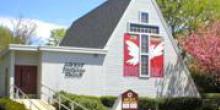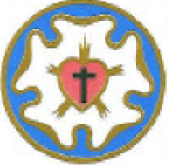Welcome to Advent Lutheran Church
What We Do
Advent Lutheran Church is a member of a the Metropolitan New York Synod of the Evangelical Lutheran Church in America. Visit the ELCA website for more information on the Lutheran church and Lutheran heritage.
Learn more about our people.
HOLY COMMUNION
every Sunday
at 10am.
Our interim Pastor, Rev. Dr. Charles R. Vogeley leads worship services.
Today
Hope Everyone Had an Enjoyable Celebration of Our Nation’s Independence Day!
From the Synod’s E-letter:
Gracious God, we give thanks for the freedom and abundance we enjoy in our country. We ask you to help us exercise generosity in our national life, addressing the root causes of poverty, hunger, injustice, racism, and lack of opportunity our neighbors experience daily. We thank you for the gift of freedom we enjoy in our nation. Pray that we will use that freedom thoughtfully and responsibly, working for justice and equity to liberate our neighbors here and around the world who are oppressed or excluded. Amen.
Seventh Sunday after Pentecost
Chapter after chapter in Mark’s gospel we’ve seen the Lord’s growing popularity in Galilee. More He helped, the more pressed in upon Him and traipsed all over Galilee following. Religious leaders, we read and heard, opposed Him over the Sabbath rules of Law. Tomorrow, chapter 6, opens with a homecoming.
Homecomings, typically, overflow with joy. Think of soldiers reuniting with their families, with a dad’s first time holding a baby born while deployed overseas or a mom returning to her child she hasn’t seen in a year of Sundays. You gotta love the “good news” clips showing a deployed soldier mom or dad walking into their child’s school for a surprise reunion. Or, holiday homecomings of children or grandchildren traveling from their out-of-state homes. What fun to have the house filled again with holy noise and activity!
None of this joy at the Lord’s homecoming! Nazareth folks are both astounded at His wise teaching and offended by His deeds of power! “And He was amazed at their unbelief.” So writes Mark. Their unbelief limits what the Lord can accomplish in Nazareth. Yet, God cannot be stopped. Resistance and rejection do not stop God from being God for us and from “doing” God to us. Sins are wholly forgiven. Graves no longer the last stop. Beelzebul defeated in the fulness of time. All it took was a rejection leading to a bloody death. His, not ours.
The rejection the Lord experienced gives way the hospitality and reception the disciples receive when they’re sent out under the Lord’s authority. Should they too be rejected? Shake the dust off your sandals as a testimony and move on!
Celebrating Independence Day last Thursday reminds us we have freedom to gather in worship. All appreciating this freedom to worship are invited to make the first Sunday in July a “full church Sunday.” Invite someone to worship. The Lord’s worthy to receive our gratitude.
Tomorrow’s scriptures include Ezekiel 2:1-5; Psalm 123; 2 Corinthians 12:2-10; and, St. Mark 6:1-13.
Hymns are “Just A Closer Walk with Thee,” “Lord, Let My Heart Be Good Soil,” “O God of Love, O King of Peace,” “He Is Lord,” and “O Lord, We Praise You.”
Claudia Bossen is the Lector. Assisting minister is Matthew Wells. Choir includes Carolyn & Richard Menard with Marilee Scheer & Todd Suprina; thank you to Lori Scheer of PA for singing last Sunday while visiting as the Choir led the congregation in “God Bless America.” Coffee hostess is Marilee Scheer. Anyone ever notice there’s always “cheer” in Scheer? Ushers are Michele & David Wells.
The Floral Vases are by Roberta Faltin in loving memory of her mom, Gertrude Hain, on her June 30th birthday and in celebration of Roberta’s birthday, also June 30th!
Prayers
We continue in prayer on behalf of Linda Benco, Ron Dobert, Joan Dowdle, Alice Dzvonar, Roberta Faltin, Otto Kirschner, Maria Mannetta, John Mulliner, Dee Parkin, ABp. Angela Shannon, Karinn Smolly, Barbara Suprina, & Todd Suprina.
“Blessed are they who mourn for they shall be comforted.” We cover in prayer Kathy Richards and her family at the Home-going of her brother last Monday. Both Pat Hoehlein and Tony Toro, friends of the Faltins, entered into Eternal Rest in the last 10 days. Join in praying for the Lord to comfort their families and friends.
Join in prayer daily with the Transition Team and Pr. Angela Shannon: “O God, You have called Your servants to ventures of which we cannot see the ending, by paths as yet untrodden, through perils unknown. Give us faith to go out with good courage, not knowing where we go, but only that Your hand is leading us and Your love supporting us; through Jesus Christ our Lord. Amen.”



